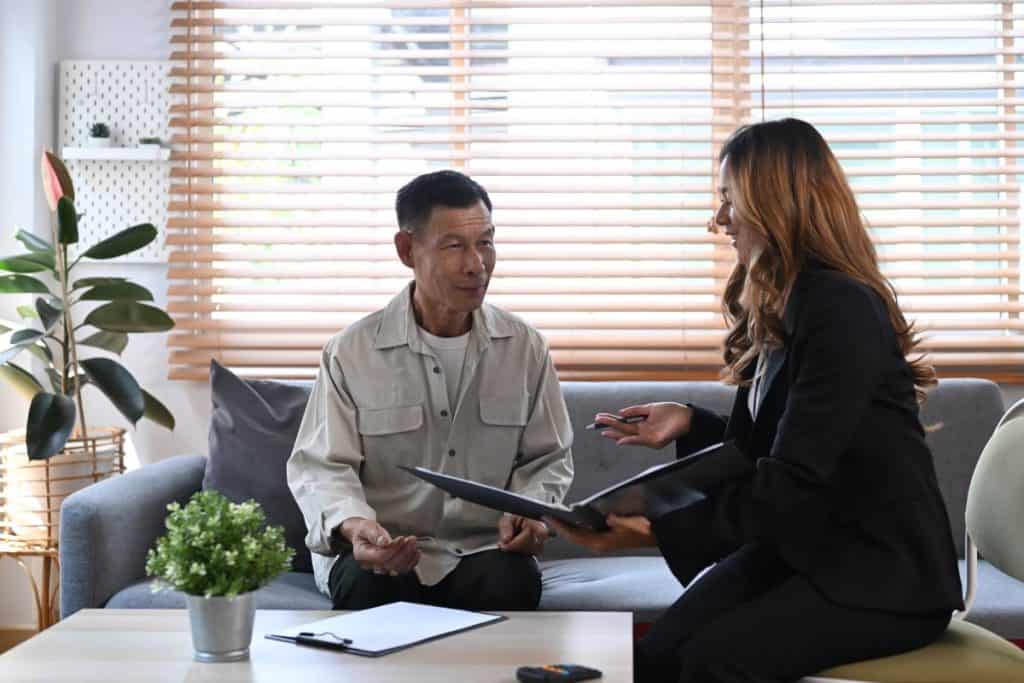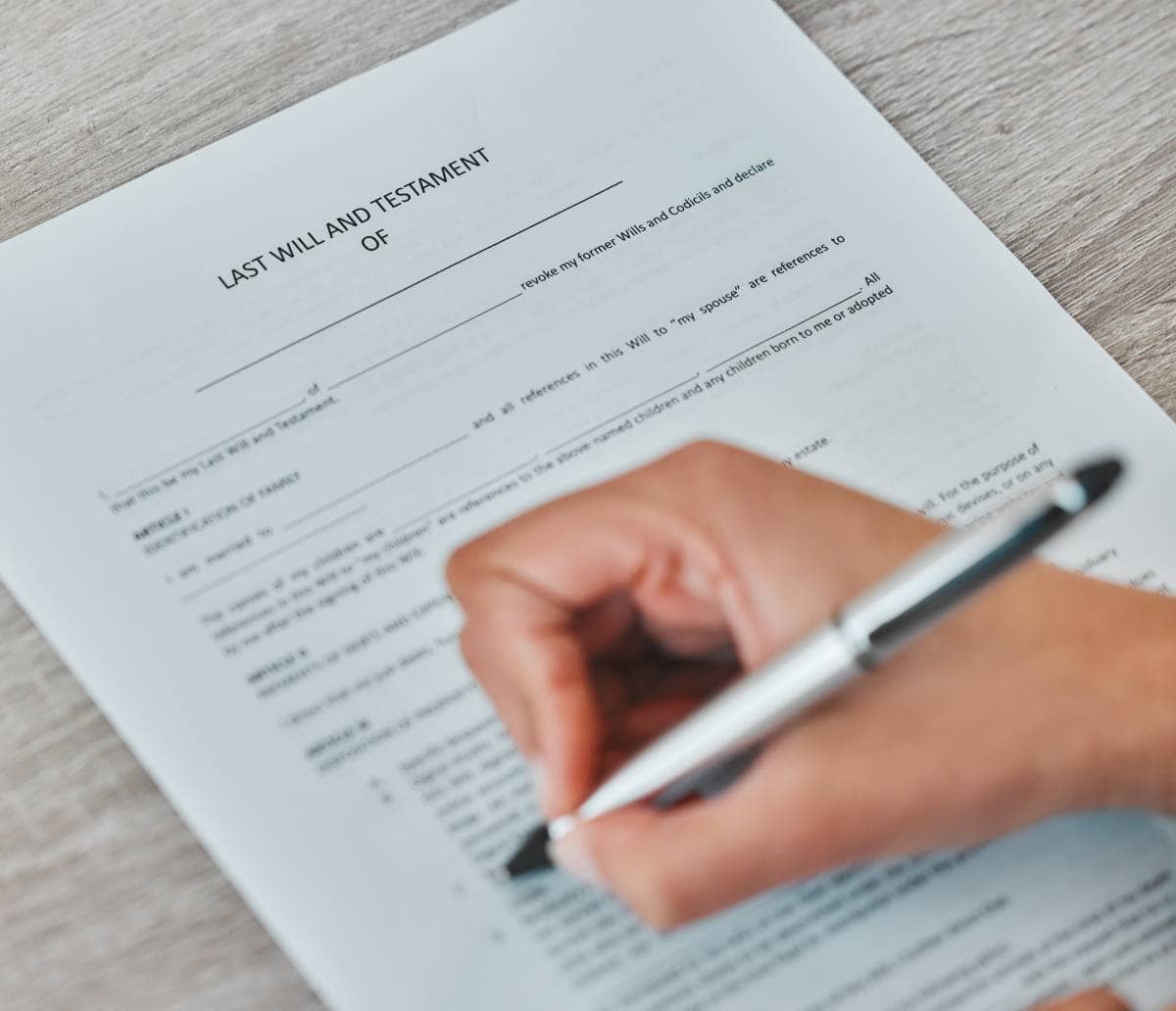Setting Up Wills in Thailand: A Complete Guide for Expats
Hey there! I’m Tom, a fellow expat who traded the American dream for Thai smiles. After figuring out the ins and outs of setting up wills in Thailand (and making a few mistakes along the way), I want to share what I’ve learned. Trust me, it’s different from what we’re used to back home! Whether you’re married to a Thai, own a condo here, or just want to protect your assets, I’ll walk you through everything I wish someone had told me when I first arrived. Let’s make this journey a bit easier for you.
Key Takeaways
- Creating a valid last will and testament in Thailand requires specific legal formalities and can be done in several ways
- Without a will, Thai intestate succession laws determine asset distribution, which may not align with your wishes
- Foreigners can create legally binding wills in Thailand, but special considerations apply for cross-border assets
Understanding the Thai Legal Framework
In Thailand, wills are governed by the Thai Civil and Commercial Code. While it might sound intimidating, the process is actually quite straightforward. The good news? The probate process here typically takes only 3-4 months, much faster than in the US!
To create a valid will, you must:
- Be of sound mind
- Be at least 15 years old
- Have at least two witnesses present when signing
- Ensure proper documentation
Types of Valid Wills in Thailand
Written Will with Witnesses (Section 1656)
The most common and straightforward option for setting up a last will and testament for a testator in Thailand is the written will with witnesses. I recommend this type for most expats because it’s simple and flexible. You’ll need to date the document, sign it yourself, and have two witnesses present to sign. The best part? It can be in English, making it accessible to foreigners.
Public documents will at the Amphur Office
Creating a will at your local Amphur office offers an extra layer of official certification. However, there’s a catch – you’ll need to declare your wishes in Thai to a public officer who then writes down your declaration. The officer must read it to you and your witnesses before everyone signs. This option works well if you’re fluent in Thai or have a trusted translator.
Secret Document Will
Privacy-conscious? A secret document might be your best choice. This method involves sealing your written will and handing it to an official at the Amphur office. You’ll need to sign the sealed document, and two witnesses must also sign the exterior. The official then seals and registers it. It’s perfect for those who want to keep their final wishes completely private until after their passing.
Holographic Testament
A holographic will is perhaps the simplest form – it’s written entirely by hand, dated, and signed by you alone. No witnesses are required. While this might seem the easiest option, I generally don’t recommend it unless absolutely necessary. Why? It can be more challenging to prove its authenticity later, potentially causing headaches for your beneficiaries.
Oral Will in Exceptional Circumstances
In extreme situations, such as imminent danger of death, Thai law permits an oral will. You’ll need three witnesses present who can later testify to your declared wishes. Think of this as an emergency option only – it’s not suitable for normal estate planning and should be formalized in writing as soon as possible.
What Happens Without a Will?
If you don’t create a will (known as dying “intestate”), Thai law determines how your assets are inherited. The order of inheritance is:
- Descendants of Heirs
- Parents
- Full siblings
- Half siblings
- Grandparents
- Aunts and uncles
Plus, your spouse will automatically receive half of all marital assets (Sin Somros) before any other distribution occurs.
Creating Your Will: Step by Step
Start with a Solid Asset Inventory
I always recommend starting with a comprehensive list of your assets and properties in Thailand. Include everything from your vehicles to bank accounts, properties, and investments. Don’t forget about business shares, personal belongings, and even digital assets. Think of it as creating a financial snapshot – it’ll make the next steps much clearer.
Choose Your Beneficiaries Carefully
Selecting your beneficiaries requires thoughtful consideration. In Thailand, you have considerable freedom in choosing who inherits your assets. I’ve seen many expats assume Thai family law will restrict their choices, but that’s not the case. You can name anyone – family members, friends, or even organizations. Just make sure to include full legal names and, if possible, identification numbers to avoid any confusion.
Appoint a Trusted Executor
Your executor will be responsible for carrying out your wishes after you’re gone. Choose someone trustworthy who understands both your intentions and Thai legal processes. From my experience, it’s often beneficial to appoint someone who either lives in Thailand or can easily travel here, as they’ll need to handle various administrative tasks locally.
Documentation Requirements
Getting your paperwork in order is crucial. You’ll need:
- Your passport or identification documents
- Property titles and documentation
- Business registration papers (if applicable)
- Marriage certificate (if married)
- List of assets and their locations
Consider Language and Translation
While your will can be in English, certain situations might require Thai translations. If you’re including Thai property or dealing with Thai institutions, having a bilingual will speed up the probate process. I’ve found that having the key terms in both languages helps avoid any misinterpretation.
Authentication Process
The final step is making your will official. For a standard written will, you’ll need:
- Your signature
- Date of signing
- Two witnesses (who aren’t beneficiaries)
- Optional but recommended: legal certification
Notarization isn’t required for a valid will in Thailand, but having your document professionally reviewed can provide extra peace of mind. I’ve seen too many DIY will cause problems later because of simple oversights in formatting or witness requirements.

Digital Assets and Modern Considerations
The New Frontier of Estate Planning
Today, they’re a crucial part of estate planning. Your digital footprint might include cryptocurrency wallets, online banking credentials, social media accounts, and digital business assets. I’ve noticed many expats overlook these valuable assets, potentially leaving them in limbo after their passing.
Securing Your Digital Legacy
I recommend creating a secure digital asset inventory, separate from your main will. Include access information, but never write passwords directly in your will – instead, use a password manager and include access instructions for your executor. Remember, some platforms like Facebook and Google have their legacy contact settings – take advantage of these features.
Tax Implications in Thailand
Understanding Inheritance Tax
According to Siam Legal, Thailand’s inheritance tax is actually quite generous. The tax only kicks in when inherited assets exceed 100 million THB (approximately US$3 million). From my experience advising expats, very few need to worry about this threshold.
Tax Rates and Exemptions
The tax structure is straightforward:
- 5% for descendants and ascendants
- 10% for other heirs
- Certain assets, like Thai government bonds, may be exempt
Remember, this is separate from any tax obligations in your home country. I always recommend consulting with tax professionals in both jurisdictions.
Common Pitfalls to Avoid
Learning from Others’ Mistakes
After years of helping expats with their wills, I’ve seen certain mistakes repeat themselves. Here’s what to watch out for:
- Assuming foreign wills cover everything: Your will from back home might not adequately address your Thai assets
- Forgetting to update after life changes: Marriage, divorce, or property purchases should trigger a review
- Neglecting to inform executors: Make sure they know their responsibilities and where to find important documents
- Using unofficial translations: Always work with certified translators for legal documents
Maintaining Your Will
Regular Reviews Are Essential
Think of your will as a living document. I review mine annually, and I advise others to do the same. Set a specific date each year – perhaps your birthday or the start of the year – to review your will and ensure it still reflects your wishes.
When to Update
Key triggers for updating your will include:
- Marriage or divorce
- Birth of children or grandchildren
- Property purchases or sales
- Business changes
- Moving between countries
Professional Assistance
When Do You Need a Legal Expert?
In my early days in Thailand, I thought I could handle everything myself – a mindset I quickly realized needed adjusting. While simple wills can be created independently, certain situations absolutely warrant professional guidance. From my experience helping fellow expats, knowing when to seek help can make all the difference in protecting your legacy.
Complex Asset Scenarios
Most expats I work with have assets spread across multiple countries, from properties and businesses to investment portfolios and retirement funds. Each of these situations adds layers of complexity that benefit from professional insight. I’ve seen too many cases where DIY approaches led to complications that could have been easily avoided with proper legal guidance.
Finding the Right Legal Partner
Finding the right legal help in Thailand isn’t just about credentials – it’s about finding someone who truly understands the unique challenges expats face. Your ideal legal partner should have extensive experience with international estate planning and demonstrate a clear understanding of both Thai and Western legal systems. Most importantly, they should be able to communicate complex legal concepts clearly in English.
Cost Considerations
Let’s talk about what you can expect to invest. Legal fees in Thailand for will creation typically range from 15,000 to 50,000 THB, depending on complexity. While this might seem significant, I’ve learned through experience that it’s a small price to pay to ensure your wishes are properly executed and your loved ones are protected.
Building Your Support Team
Estate planning isn’t just about legal documents – it’s about creating a support system that will help your family navigate challenging times. Beyond your lawyer, consider working with qualified accountants for tax guidance and financial advisors for asset management. Having a trusted local friend or advisor who can assist your family when needed can also prove invaluable.
FAQs
Can I write my own will in Thailand?
How much does it cost to make a will in Thailand?
Who are the legal heirs in Thailand?
Is probate required in Thailand?
How do wills work in Thailand?
Conclusion
After helping countless expats navigate this process, I understand how overwhelming it can feel. But you don’t have to figure it out alone. Whether you’re just starting to think about estate planning or need to update an existing will, I’m here to help connect you with the right resources and professionals. Want to discuss your specific situation? Schedule a consultation today, and let’s ensure your legacy is protected the way you want it to be.






